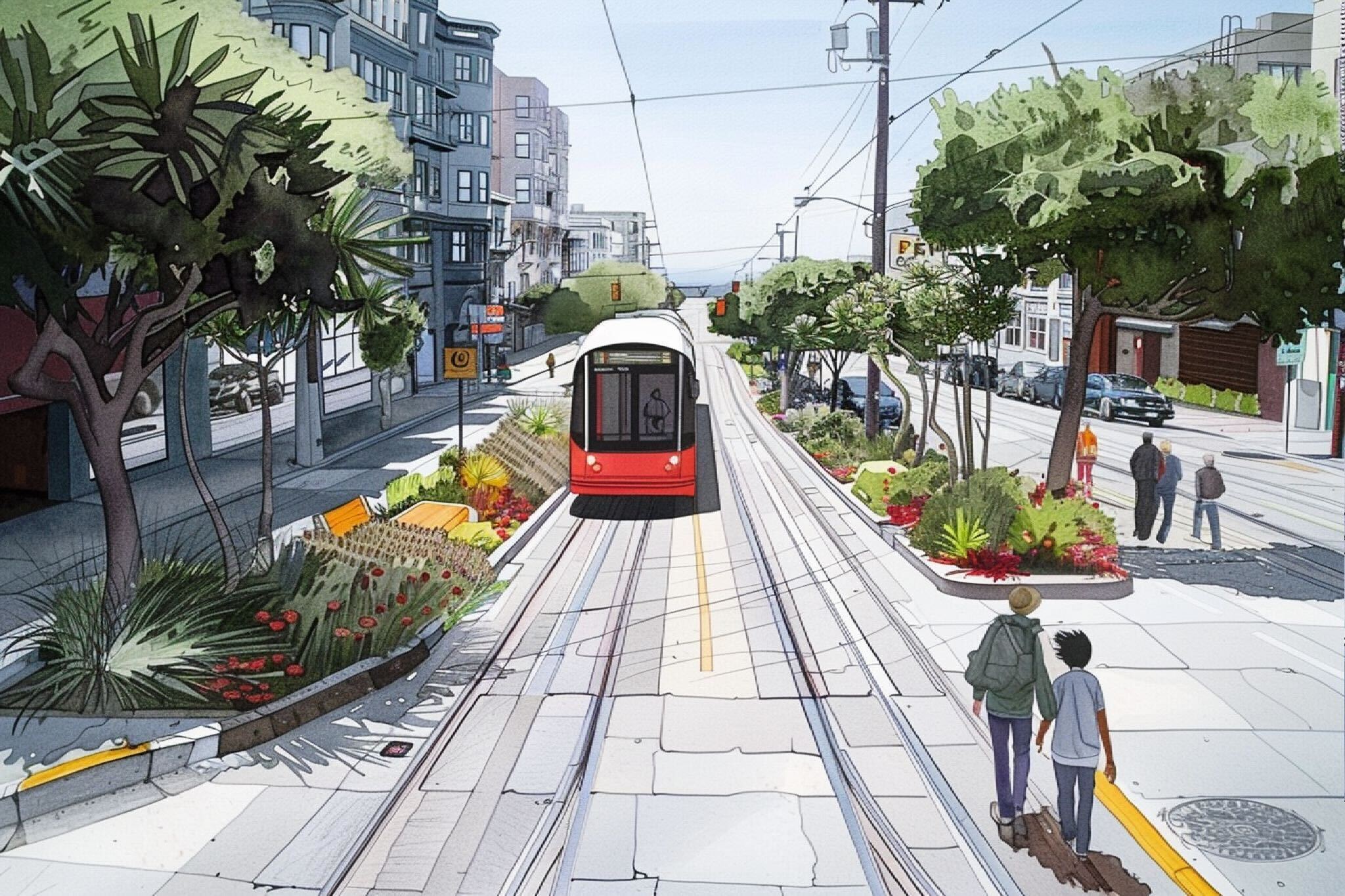This fall, Taraval Street will be safer for everyone who uses it, repaved and beautified with new landscaping. You’ll see new rail tracks, overhead lines, boarding islands, transit stops and bulbs and traffic signals for the L-Taraval. What you won’t see is the miles of new sewer and water lines beneath the road. This infrastructure is critical—we all value running water and toilets that flush—and it’s also disruptive to replace.
As The Standard recently reported, the L-Taraval improvement project has been difficult for the people who live and work in the Sunset and Parkside neighborhoods. It’s also crucial for the future of the west side of San Francisco.
Think about what happens when the roof on your house is 20 years old. There’s a high likelihood it’s going to leak during the next big rainstorm. You can patch up the holes, but you’ll have to replace the roof at some point. That could be expensive, noisy and—if you’re using tar—unpleasant for you and your neighbors. But waiting to replace it could be catastrophic and result in irreparable damage.
The infrastructure on Taraval Street and throughout the west side of San Francisco poses the same problems. Before this project, almost all of Taraval Street’s infrastructure was over 50 years old. The L-Taraval tracks were supported by wood on shifting sand. Water and sewer mains were near collapse. Muni riders were forced to exit trains into traffic, resulting in serious safety problems. Thirty-four years after the passage of the Americans with Disabilities Act, most L-Taraval stops were still not accessible.
As anyone living in the Sunset District knows, Taraval Street was neglected by the city for too long. So the San Francisco Municipal Transportation Agency, San Francisco Public Utilities Commission, Public Works and Pacific Gas & Electric joined forces to make a major investment in Taraval, correcting safety, accessibility and maintenance problems, setting it up to thrive for the next 50 years.
Doing this work all at once, after decades of disrepair, means there has been significant disruption to the neighborhood. The biggest disruption is from replacing the aging underground utilities. The only thing worse than tearing up a street to replace old infrastructure is leaving it in the ground to rot.
Construction is disruptive and painful, so when we make investments to improve safety and transit—as we are on Taraval—we collaborate with other city agencies to do the work at the same time. It makes our projects take longer, but it means the Taraval community won’t have to go through this pain again. This is a generational investment in Westside infrastructure to deliver a safer street, running water and working sewers for decades to come.
We are laser-focused on getting this project done and doing all we can to reduce the pain of construction. Thankfully, more than 95% of the sewer and water work is complete, along with about 80% of the rail installation. The project is on schedule to be completed this fall. Supporting local businesses is a top priority for us, so we’re constantly communicating with L Taraval merchants and have collaborated with them to address the effects of the project. Taraval has always been both a transit and merchant corridor and the success of each depends on the other.
We worked with local merchants to set the project schedule, asking: shorten the overall project schedule or shorten the impacts on your block? Based on their feedback, we opted to complete the segments separately rather than concurrently. This changed the timing but not the duration of the work east of Sunset Boulevard.
Our contractor, NTK, has worked hard to accelerate construction and respond to merchant needs. Segment A was completed on schedule and Segment B remains on schedule as well.
We also work with each local merchant to maintain access to their business during construction and we’re available every day to answer questions and address issues. In response to their feedback, we’ve added angled parking on Taraval between 14th and 15th avenues, moved stored equipment, added crossings and paused construction during the holidays.
We know major utility work is as painful for nearby businesses as it is necessary. Since most of this project’s funding cannot be used to directly support businesses, we are grateful that Mayor London Breed and Supervisors Joel Engardio and Myrna Melgar directed $1 million in relief funding for Taraval small businesses.
It still isn’t easy for businesses. We understand that. We will continue to do all we can to support merchants. We’ll keep listening, learning and making changes until we get it right—to be a better partner for our small businesses, a better SFMTA and to build a better city and transit system.
Jeffrey Tumlin is director of transportation for the San Francisco Municipal Transportation Agency. He oversees the Municipal Railway (Muni), parking, traffic engineering, bicycle and pedestrian safety, transportation accessibility and taxi regulation in San Francisco.
